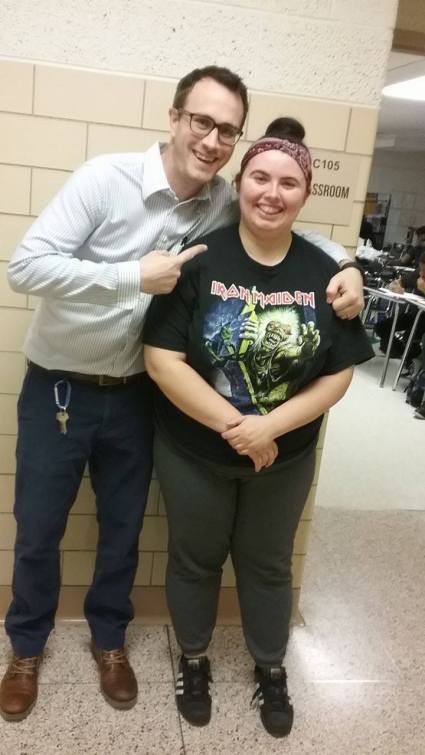By Samantha Stevenson

Since October the culinary room has been filled with delicious smells produced by William Penn’s Culinary ProStart team. The state competition held on March 10 in the Chase Center on the Wilmington Riverfront featured high school culinary teams from across the state. Both Penn teams placed first out of the 11 schools that competed.
ProStart is the culinary curriculum that is taught to high school students. Tryouts for Penn’s team were held in September and the team officially started in October. Kaitlin Luciano, a senior in William Penn’s culinary program stated that for tryouts they each had to make a dish with gnocchi.
“For you to join, you have to be devoted on Tuesdays and Thursdays and any other kind of additional practice. You also have to work long hours and to work hard,” Luciano said.
This dedication has helped with the future skills of students who wish to pursue the career. “It gave me a reason to come to school,” Luciano said.
In addition to the motivation, it has impacted her career choice as well. “In fall I’m going to Johnson & Wales University for Culinary Arts,” said Luciano.
William Penn have three chefs that guide students in the culinary program: Matthew Vaughn, Kip Poole, and Ian Baker. These chefs help students prepare for the intense competition. For the competition, students are broken up into two teams: cooking and management.
“Culinary team has to produce 3 dishes in one hour. They have to do an appetizer, entree and a dessert. They are only allowed to have 2 camp stove burners and no refrigeration. No electricity, no battery operated. It’s very hard,” Vaughan said. “
Students made an octopus appetizer (Spanish octopus over a heresa quinoa with puffed masa tortillas), a lamb entree (lamb loin over top of a potato risotto, pea and mushroom ragu), and a donut dessert (a beet glazed donut with a goat cheese creme and orange whipped cream and a raspberry sauce and pistachio).
Since the Colonials won first place, the Culinary ProStart team made it to Nationals held on April 28 in Charleston, South Carolina. Students will be gone for a week and they will compete against schools from all over the country. Last year the students got to go to Las Vegas to eat at restaurant run by famous chefs. The prize for winning is scholarships to help the students further their career in cooking.